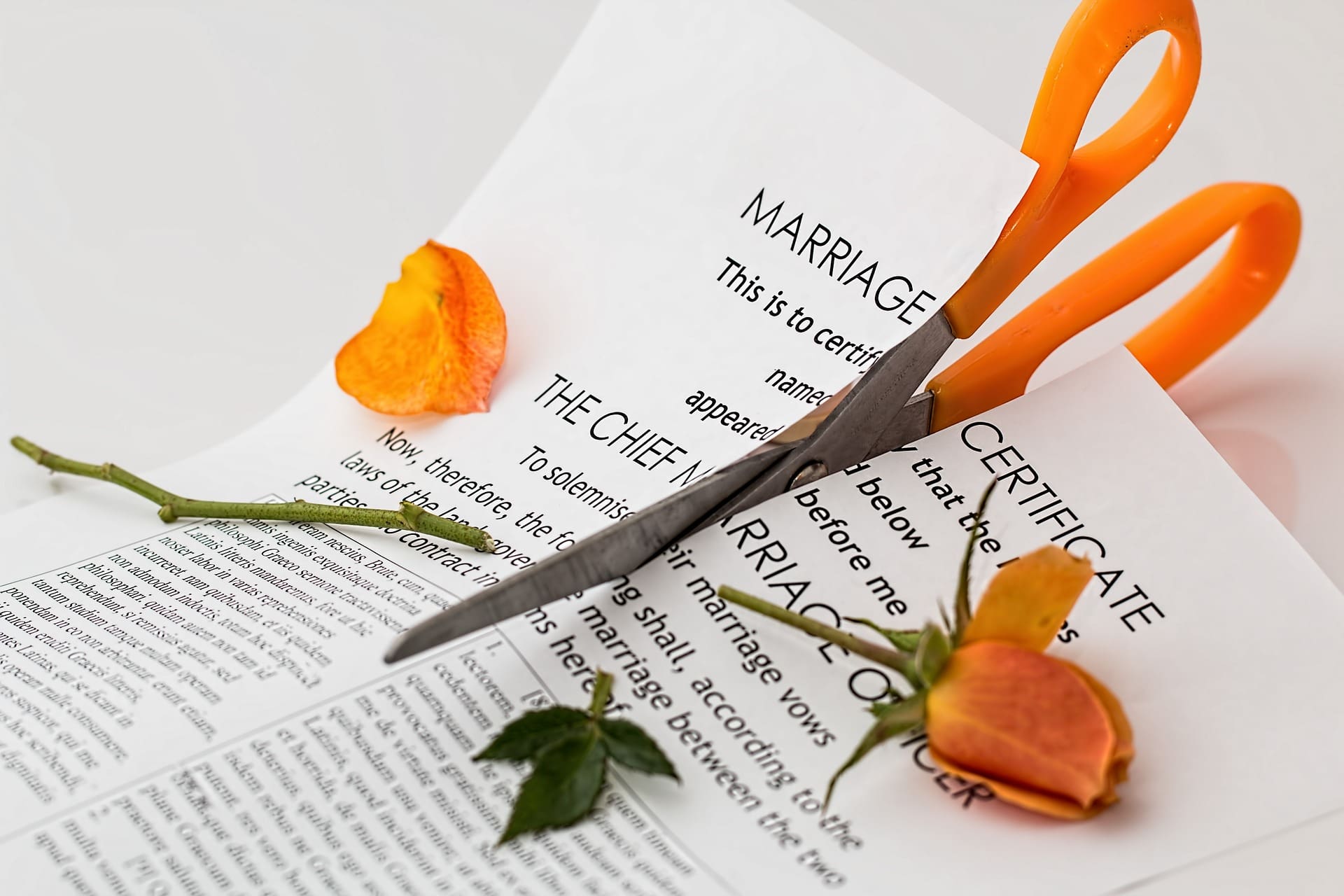
How to mitigate the financial impact of divorce
Studies show that expat divorce rates are much higher than average.
In addition, while divorce is complex at the best of times, for expats it can be even more challenging.
For example, there is the matter of where to get divorced. In the country of residence or the home country? What happens if the 2 parties have different nationalities? Where then?
At the end of the day, every marriage and divorce is different. There are no hard and fast rules regarding the division of assets.
The people who navigate divorce most successfully are those that think about their finances before they sign the decree.
Unfortunately, many people get divorced and then they deal with the financial consequences. This is a mistake.
Here are some steps that can at least mitigate the financial impact of expat divorce.
1 Beware of frozen accounts
2 Be organised
3 Understand the value of what you have
4 If possible, consider mediation
5 Don’t ignore the pension
5.1 Pension division options
6 Beware of being emotionally attached to the family home
7 Create a post-divorce budget
8 Redo your will and beneficiaries
9 Review your protection needs
10 Rebuilding your finances post divorce
11 Resources

Beware of frozen accounts
You’ll need to make decisions on joint financial arrangements for the short term.
Banks can freeze the assets in joint accounts, or make arrangements so that you both have to agree to any money being withdrawn.
Similarly they can place controls on debts to prevent either party from abusing joint arrangements.
If you are being paid directly into a joint account, consider arranging for the money to be paid elsewhere, and if there are bills, rent or the mortgage coming out of it, you’ll need to arrange an alternative way of paying these.
Be organised
Make a complete list of all assets.
Items that should be listed include the home or any joint property, land, holiday homes, vehicles, bank accounts, investment funds, pensions (this could include schemes you have through work, such as final salary pensions, money purchase schemes or AVCs as well as personal pension plans including SIPP and QROPS), stocks, bonds, insurance policies, and valuable collectibles.
Understand the value of what you have
Couples often offset assets, but it’s important to appreciate the value of what you are giving up and what it will cost to replace it.
If possible, consider mediation
If you and your spouse can work together to reach a fair settlement on most or all of the issues in your divorce (e.g., child custody, child support, and division of assets), choosing mediation to resolve your divorce case may save a small fortune in legal fees (as well avoiding immeasurable emotional aggravation).
The mediation process involves a neutral third-party mediator that meets with the divorcing couple and helps them reach an agreement on the issues in their divorce.
Mediation is completely voluntary; the mediator will not act as a judge, or insist on any particular outcome or agreement.
Don’t ignore the pension
Aside from real estate, retirement plans are usually the largest asset in a marriage.
Yet, while houses are sold and assets split, retirement plans are often overlooked during divorce.
This may be due to a lack of understanding of how pensions work or how they are valued.
For example, Defined benefit (DB) pensions, often known as final salary pensions, have shot up in value in recent years.
The value (CETV/Cash Equivalent Transfer Value) of such schemes is now commonly calculated as a multiple of more than 30 times the annual income the pension will pay out – and I have personally worked on cases where it was considerably higher.
So, if your partner has built up a final salary pension paying just £15,000 a year, the chances are it is probably worth more than the average house.
Someone with £40,000 of final salary pension could be sitting on an asset worth over well over £1,000,000.
Or, it may be because a divorce can occur many years before life without work is even an option.
When retirement is so far in the distance, it can be easy to neglect to pay the necessary attention to pensions and retirement savings plans when other things seem far more pressing.
In my profession, it is all too common to hear from individuals who remember retirement plans years after their divorces are finalised.
As a result, a divorcee can lose out on a significant portion of the marital assets and face quite a shocking reality of their projected retirement income.
Pension division options
When it comes to dividing up a pension, there are a few options as to how to split it:
- pension sharing divides it into two separate pensions;
- pension offsetting trades it off against the value of other assets held by the couple;
- deferred pension sharing (not available in Scotland) arranges to share the pension at a later date; and,
- a pension attachment order (pensions earmarking in Scotland) pays an income or lump sum to the other member of the couple when the pension holder starts taking their pension.
The splitting of pensionable assets can be complex and in many cases it is worth seeking the help of a financial adviser that has experience in dealing with pensions and divorce.
Beware of being emotionally attached to the family home
Often, divorcing spouses that are attached to the family home don’t realize that, in reality, they can’t really afford it.
Forgoing a pension for the lion’s share of the property, for example, can have significant long term implications (see above).
Create a post-divorce budget
What you need to know is what your costs of living will be after a divorce.
Some people’s incomes drop drastically after divorce.
It’s best you be prepared by building a budget now instead of being hit over the head with bills you can’t pay.
Some expenses will have to be estimates but it is important so that you can have some idea of what you will need to survive in your new life.
It is also important because it will influence how you negotiate your divorce settlement.
You need to know what you will need financially in order to evaluate your settlement options or what you may ask for should your case go to court.
Redo your will and beneficiaries
Divorce invalidates any wills, so you need to make a new one as quickly as possible to ensure your estate will be divided according to your wishes.
You may also need to change your nomination of beneficiaries for your pensions, life insurance and work-based death-in-service benefits.
Review your protection needs
If one spouse is paying child maintenance, then it is important to have life insurance in place to cover payments in the event of their death.
Likewise, if one spouse has a pension that both will rely on in retirement, then it is important to make sure that life insurance is set up as part of the divorce settlement.
The cost of insurance is tiny in comparison to funding the cost of living for 20+ years.
Rebuilding your finances post divorce
Divorce is expensive.
It’s common to erode cash reserves or even run up debts during a split because you are dividing the same income between two households – while at the same time paying for what can be a costly legal process.
Building up short-term savings to create an emergency fund should be a priority.
Then, you will need to revisit your longer-term savings and investments, and review the damage done.
You may well need to rebuild your portfolio or your pension, and rethink your plans for retirement, so the sooner you start, the better.
Resources
If you are thinking about getting divorced or dissolving a civil partnership, this calculator can give you an idea of your financial situation before a potential divorce settlement.
It will also help you work out what you have, what you owe and how you might split assets and finances.

Talk to an Expert
Divorce as an expat is rarely straightforward. Different countries can claim jurisdiction over your finances, property, pensions and even future maintenance, and it can be difficult to see how today’s decisions will affect your long term security.
I am Ross Naylor, a UK-qualified Chartered Financial Planner and Pension Transfer Specialist with nearly 30 years of experience helping British expats understand the financial impact of separation and divorce, and rebuild a clear, realistic plan for their future.
I firmly believe your location in the world should never be a barrier to expert, impartial and transparent financial advice you can trust.
Whether you are unsure how to divide pensions, what happens to UK property, how maintenance and child support fit into your long term plan, or how a possible return to the UK might change things, I will work alongside you (and your lawyers where needed) to help you make calm, informed financial decisions at a very stressful time.
Book a confidential consultation
